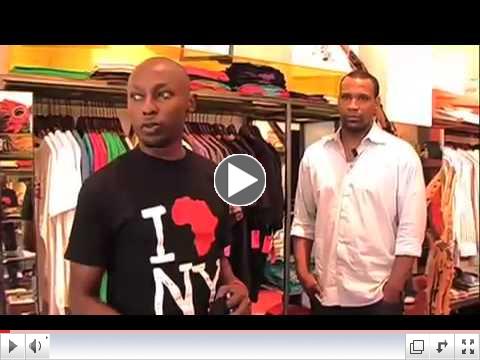|
NATIONAL SUMMIT
The Transformative Capacity of the African Diaspora in African Development
Alongside the US-Africa Summit
2-Day Legacy Maker
Only $160 gives you free admission to all programs that require a reservation.
August 4:, 2014: Legacy Workshop, Lunch, and Gala
August 5: Interfaith Prayer Luncheon; Africa Diaspora Roundtable on Partnership and Collaboration with Leaders' Power Reception
Or
You may make reservation for only the event(s) you choose to attend.
A Historic Opportunity for African Diaspora to develop leadership in African Development
Monday August 4th, 2014
8:30 AM to 4:00 PM
Silver Spring Civic Building and One Veterans Plaza
Downtown Silver Spring in Montgomery County, Maryland: View
AFRICAN UNION DIASPORA LEGACY WORKSHOPS General Assembly and Break-out Sessions 8:30 AM to 3:30 PM
with
LUNCHEON Conversation on US-Africa Summit
12:00 PM to 2:00 PM
Cost $35 includes buffet lunch.
Reserve
VIBRANT AND VITAL AFRICA SHOWCASE 10:00 AM to 4:00 PM
Free event Outdoors, no reservation required.
Africa's diverse and unique resources, from Algeria to Zimbabwe, showcase Africa of socioeconomic opportunities, touristic destinations, educational excellence, civilizations, cultural enrichment, and global partnerships. In this enlightening and innovative exposition, you will interact and learn from each national exhibition the vibrancy and vitality of Africa in the global society and the resilience her people.
.
AFRICAN UNION DIASPORA LEGACY BANQUET GALA, CONCERT
7:30PM to 1:30PM
Hyatt Regency, Bethesda, Maryland
Featuring

Tribute to the Congressional Black Caucus and the Donald Payne Sr. Legacy on Africa US-Africa Affairs
Honoring the Denise Rolark-Barnes and Former Peace Corps to Africa

Celebrating Dr. Kwame Nkrumah's Vision: Africa Unite.

Africa On the Runway: The Ultimate Influence of African Fashion. Fashion Show by the versatile best with AGOA significance

Music Concert and The African Renaissance Center Youths
Reserve
Monday August 4th, 2014
Interfaith Luncheon: 12noon - 2:30pm
Partnership and Cooperation Roundtable
The Leadership Cocktail: 6:30pm to 9:00pm
Free to those who paid for the entire program
Background Information on the African Union Diaspora Legacy Projects:
On May 25, 2012, in South Africa, the Global African Diaspora Summit concluded with African governments adopting a set of flagship projects aimed at strengthening the contributions of the diaspora to the continent.
The five Projects are explained in this email. In summary, they provide unprecedented opportunities for Africa Diaspora to be a vital, innovative, and active sector in Africa's developments at local, national, regional and continental levels.
The African Union's Citizens and Diaspora Organizations (CIDO) department is reaching out and has requested a proposal for a program with the Diaspora alongside the US-Africa Summit between the White House and African Heads of State on August 5-6, 2014.
The National Summit on the African Union Diaspora Legacy Projects is a civil society and collaborative initiative, which is an outcome of the preliminary African Union Diaspora Legacy Forum held at the Nigerian Embassy on March 29, 2014. CLICK

The African Union Diaspora Legacy Projects Workshop is a substantive forum to sensitize the respective flagship projects, exchange reliable information, build connections, learn about the opportunities, and for stakeholders to become informed and engaged in Africa's development.
|
|
The five African Union Diaspora Legacy Projects are:
1) African Diaspora Skills Database, 2) Africa Diaspora Development Market for African Development, 3) African Institute for Remittances, 4) African Diaspora Investment Fund and 5, African Diaspora Volunteer Corps.
|
|
 The African Diaspora Skills Database
Africa needs to prioritize African Professional Expertise
Generally, Continental Africans migrate as students seeking higher education and, subsequently, doors to socioeconomic opportunities. The expatriate population is pulled to the Diaspora for the economic incentives while those who migrate as refugees are pushed out, escaping war and instability. Whatever the reason, one thing is clear: Migration of skills and knowledge without reversing incentives, is a net loss to Africa in what is generally referred to as "brain drain," which perpetuates African dependencies on non-African know-how. No geopolitical region manages its development through dependency.
 | | AIMS student Kidist wants to end the brain drain from Africa |
Numerous and current research indicates that Continental Africans are the most educated population in the United States. This fact is backed by the US Census. Similar finding has been made in the United Kingdom, which was published by the Economist.
The dynamics of globalization and instant technology have added to the ease with which skills can be deployed. Therefore, Africa can transform brain gain to brain circulation and reverse the net loss by using Continental Africa Diaspora expertise, especially in areas of high demand across African nations. The African Diaspora Skills Database involves the systematic identification, compilation, and Cataloging of the professional expertise of individuals.
The Data is most useful when specifically documented to facilitate targeted developments. For examples, Heath: Epidemiology, Pediatrics, Emergency care, Oncology, Public Health; Information Technology: Infrastructure, security, communication; Agriculture: Agronomy, Animal Husbandry, Marine Acqua-culture; Education: Special Education; Management, Curriculum development. Cataloging skills by disciplines and sub-specialties prevents generalizations that provide information of little practical use.
In order to map, match, and apply skills, targeted regions, countries or institutions may have to identify the sectors where the professional skills are in demand. The approach is cost effective because it ensures that there is demand for a defined expertise and for specified development before the mobilization of the brain gained. This tailored approach to data collection, which is linked to specific sectors, is more valuable than generic mapping.
|
African Diaspora Development Market Place for African Development
African Diaspora Development Market Place focuses on Entrepreneurship and Innovations. The Project enables Africa Diaspora business owners to seize opportunities to competitively improve the quality of life in African communities through profitable businesses by introducing new, innovating products and services into the markets; creating jobs, and boosting the economy.
Development Market Place facilitates financing for the business community, from start-ups to small and medium sized enterprises, industries with high impacts, to social entrepreneurs. The business owners must demonstrate their relationship to Africa.

The market includes all sectors: from the Agro-industry/food security; Manufacturing; Construction; Transportation; Biotech; Information, Communications Technologies; to social sectors such as Education; Water; Energy, Sanitation; Health, etc. as long as they are sustainable and profitable or with potentials for profitability.
|

The African Institute for Remittances (AIR) is scheduled to go into full operations in 2015 and hosted in Kenya. In addition to reduced costs, the fees can be used to support developments in Africa.
Studies show that African migrant Remittances to African countries are second only to foreign direct investment and surpass all official development aid. Beyond Remittances, the migrant wealth of Continental Africans has enormous potentials for funding large scale development projects.
Remittances to Africa has grown remarkably in recent years, estimated at $60 billion annually, which is a conservative estimate and perhaps half of the actual amount as noted by analysts who compiled the official report.
The magnitude of the Remittances, which is more than the combined cash flow from the World Bank and International Monetary Fund to Africa, has gained the attention of the international development community due to the positive impacts on the standard of living of the beneficiaries.
However, the transfer cost remains unacceptably high by international standards. One of the consequences is that the full potential for economic and social development is largely unrealized. For example, while South Asians pay an average of US$6 for every $100 they send home, Africans often pay more than twice that amount. Using South Africa as a citation, which has the highest remittance costs on the continent, nearly 21 percent of money designated for the needs of families back home is spent on the cost of the money getting there.
With an estimated millions of Africans depending on Remittances from family members abroad for their economic survival, health, and education, the high cost of transactions undercuts the impact Remittances can have on poverty reduction.
How can AIR be operated more effectively and efficiently as an African-owned entity in the public sector? What are the means through which members of the community can send money through AIR? What are the advantages, which include reduced cost of transactions and using Remittance fees as development tools for poverty reduction?
Continental Africans as Financiers of Africa's Growth: The Africa Diaspora Bond
Beyond Remittances, the migrant wealth of Continental Africans has enormous potentials for funding large scale projects in the public sector.
This brings us to the African Diaspora Bond. This is a sovereign bond that can be issued by the country to its Diaspora members as an alternative to borrowing from the international capital market, multilateral finance institutions or bilaterally from non-African governments.
Based on a report published by the African Development Bank Group entitled: Diaspora Bonds in an African Context,
Continental Africans save up to an annual estimated
of
$53 billion in destination countries. It is estimated that Diaspora Bonds can produce $17 billion a year of Continental African financing.
With a sense of patriotism, directs ties in Africa, and the incentive of reasonable rates, African Diaspora Bonds can attract sufficient investors. The proceeds of the Africa Diaspora Bonds can also be used to develop projects that are popular in the Diaspora.
|

African Diaspora Investment Fund
Non-Profits
Arguably, Africa Diaspora constitutes the greatest Africa's offshore asset. The capacity is crucial catalyst in accelerating development of African countries because the stakeholders have permanent, vested interests in the welfare of their localities, countries and regions.

Hometown, Alumni and Professional Networks (HAPN) create and perpetuate a new community among people of similar immigrant-oriented backgrounds.
They represent a transnational identity rooted in their country's or region of origin with influence in both the local and international contexts.
In addition promoting African ethnic culture and heritage, HAPNs are platforms for diaspora philanthropyas they help to fund projects that range from micro-enterprise, social infrastructure development providing through the construction of clinics, water projects, libraries, classrooms, donating money for special projects to scholarship programs for students.
The African Union and governments can prioritize and maximize the expertise of HAPNs African by supporting and viable programs, especially for services that combat the ills of poverty, circle of unemployment, and currents of underdevelopment. These projects are having social, economic and technological transformations that benefit low-income populations in Africa.
 | | I'm an African in New York. |
The African Diaspora Development Fund addresses the financial and operational capacities of organizations in order to enable Diaspora development practitioners to increase their by effectiveness, reduce informal practices, and maximize the impacts of development projects they are implementing on the ground. These projects are having social, economic and technological transformations that benefit low-income populations in Africa.
The fund will provide a platform through which the African Union Commission can engage Africa Diaspora on the Continent's development.
|
|
African Diaspora Volunteer Corps

Not everything that counts can be counted. And not everything that can be counted, counts." - Albert Einstein
The compassion and commitment to serve are priceless. Make Africa your Choice and you can create invaluable enormous impact on the social vitality, economic vibrancy and health of a community in Africa based on your skills and interests. The African Volunteer Corps also provides opportunities for aspiring professionals and youths to gain hands-on practical training while improving their kills and knowledge. Volunteers can be deployed on short and medium missions in Africa where they can share and transmit their knowledge, experiences in the communities. In deed, African Diaspora volunteerism positions stakeholders to master the development of the continent in unique and innovative ways.
|

The Formats: The interactive formats will include Presentations; Handouts; Question & Answers; Illustrations of Best Practice; Break-out sessions on each Legacy Project; Luncheon Networking; Post-workshop feedback.
The Goals:
The goals of the African Union Diaspora LEGACY PROJECT Workshops are:
 1) Provide reliable information on the 5 African Union Diaspora Legacy Projects to a diverse stakeholder community. 1) Provide reliable information on the 5 African Union Diaspora Legacy Projects to a diverse stakeholder community.
 2) Identify incentives and opportunities for stakeholders. 2) Identify incentives and opportunities for stakeholders.
 3) Document Diaspora capacities on the 5 African Union Diaspora Legacy Projects. 3) Document Diaspora capacities on the 5 African Union Diaspora Legacy Projects.
 4)) Identify constraints or access barriers that hinder effective participation by stakeholders. 4)) Identify constraints or access barriers that hinder effective participation by stakeholders.
 5) Explore viable solutions, including policies, that may facilitate the implementation of the respective African Union Diaspora Legacy Projects at local, state, regional and continental levels. 5) Explore viable solutions, including policies, that may facilitate the implementation of the respective African Union Diaspora Legacy Projects at local, state, regional and continental levels.
 6) Identify key enablers in order to facilitate outreach to stakeholder groups 6) Identify key enablers in order to facilitate outreach to stakeholder groups
 7) Promote exchange of good practices. 7) Promote exchange of good practices.
The specific objectives are to:
 Improve awareness on the respective Africa Union Diaspora Legacy Projects in order for stakeholders to take advantage of timely opportunities. Improve awareness on the respective Africa Union Diaspora Legacy Projects in order for stakeholders to take advantage of timely opportunities.
 Strengthen the organizational capacity of organizations to deliver programs that achieve positive impact through competent support services. Strengthen the organizational capacity of organizations to deliver programs that achieve positive impact through competent support services.
 Improve the ability of Diaspora-owned small and medium enterprises to spur entrepreneurial innovations in Africa through equitable access to information and services. Improve the ability of Diaspora-owned small and medium enterprises to spur entrepreneurial innovations in Africa through equitable access to information and services.
 Enhance the organized and coordinated abilities ofAfrica Diaspora to take leadership on African development and policies. Enhance the organized and coordinated abilities ofAfrica Diaspora to take leadership on African development and policies.
 Recommend to the African Union solutions, ideas, policies that reduce or remove constraints on the ability of Diaspora organizations and businesses to have timely access information, courtesy services and assistance in implementing projects at local, state, regional and continental levels. Recommend to the African Union solutions, ideas, policies that reduce or remove constraints on the ability of Diaspora organizations and businesses to have timely access information, courtesy services and assistance in implementing projects at local, state, regional and continental levels.
 Improve the use Africa Diaspora capacities to inform evidence-based policies in US-Africa developments. Improve the use Africa Diaspora capacities to inform evidence-based policies in US-Africa developments.
 Improve stakeholders' knowledge on critical instruments for implementing each of the Legacy Projects such as government policies, financing frameworks, incentives. Improve stakeholders' knowledge on critical instruments for implementing each of the Legacy Projects such as government policies, financing frameworks, incentives.
 Develop baseline data, benchmark and targets that measure the progress of Africa Diaspora organizations and businesses in achieving positive impacts in Africa's development.
Support for the African Union Diaspora Legacy Gala and Awards will provide resources for capacity building, policy-relevant research, outreach education and engagement on the analysis, advocacy and publication on the African Union Diaspora Legacy Projects.

|
|
For more information on the the programs, please call:
|
|
|
|
|